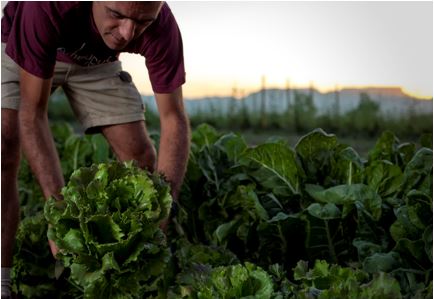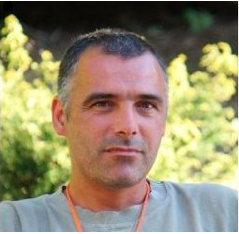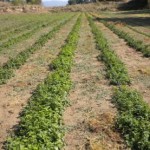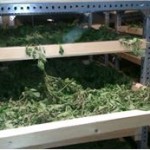by Bernat Vilarasau 12/04/2014
 Over the last two years I have been involved in an exciting social entrepreneurship experience. It was in December of 2011, when a group of seven entrepreneurs founded the Cooperative Sambucus sccp. But the real beginning of the initiative was two years before. At the time I was working as the manager of a supra-municipal Consortium for the delivery of services in a rural area near Barcelona, called Lluçanès. The economic crisis had produced a significant amount of unemployment and most of them were experiencing social exclusion. With another manager of an Economic Promotion office in a city near my area, Manlleu, we began to think that we should do something different. We felt that the usual programs of Catalan Occupational Services weren’t appropriate for the less established and poorest people who were suffering due to the crisis.
Over the last two years I have been involved in an exciting social entrepreneurship experience. It was in December of 2011, when a group of seven entrepreneurs founded the Cooperative Sambucus sccp. But the real beginning of the initiative was two years before. At the time I was working as the manager of a supra-municipal Consortium for the delivery of services in a rural area near Barcelona, called Lluçanès. The economic crisis had produced a significant amount of unemployment and most of them were experiencing social exclusion. With another manager of an Economic Promotion office in a city near my area, Manlleu, we began to think that we should do something different. We felt that the usual programs of Catalan Occupational Services weren’t appropriate for the less established and poorest people who were suffering due to the crisis.
We looked for more people to be involved in the project and began to think of some ideas. We are in a rural area and the organic food sector was growing despite the crisis. For this reason we saw an opportunity to produce organic vegetables and organic herbs and condiments. We found some farms to rent and after a few months working with a consultant on a business plan, we decided to become social entrepreneurs and knew, more or less, what kind of project we were going to do. I saw one thing clearly, the business plan is a good tool to ask yourself the right questions but it isn’t useful to find the rights answers. You must find the right answers by correcting your mistakes while you are implementing the business plan.
Finally we decided to created a Social cooperative to produce organic food, vegetables, herbs and condiments, and gastronomic services (e.g. catering, restaurant, and cooking courses). We were seven entrepreneurs, a two agronomists, one farmer, two cooks, one social worker and one economist. Throughout the process we have had a range of different partners and without them it would not have been possible to do.
The first partner and promoter of the idea was the local government administration. Maybe it was because it is the administration that works nearest to the people and notes the needs of the population before other levels of government. Being a public project, Economic promotion Office of Manlleu funded the first studies and investments to define the project. For instance, the Sambucus sccp’s restaurant is located in a public market and it was equipped using public funding.
The second partner was a private foundation linked with a bank, Fundació Catalunya-La Pedrera. This Foundation has a program to give support to social farming projects, and they chose our project. They have delivered management assessment and financial credit to begin the project with very favourable terms.
Another partner was a wealthy family who had just bought a cottage in our area and they wanted to be involved in a social cooperative project such as our cooperative. They rented us their land to cultivate aromatic plants to produce herbs and condiments and they went into the cooperative as a capital partner. This family has been a important partner because they are entrepreneurs and owners of an important cooperative in the renewable energy sector and they have helped us with their experience in social economy.
And, perhaps you are asking yourself, after two years how is the Sambucus sccp doing? I would like to answer this question saying: “Oh, it is going wonderfully we are already twenty workers and it is a really profitable business!” But the reality is absolutely the opposite. The Cooperative is fighting to survive, to pay the bills and salaries of the workers, and some of us, like me, are working in another projects to make a living.
Reflecting on these two years I could identify some causes of our current situation. I would like to explain it because, maybe, It could be useful for other entrepreneurs who are beginning their projects. One thing that I clearly see now is that we began too many lines of production at the same time. Organic vegetable production, organic herbs and condiments and the restaurant and caterings services. All of these activities need time to develop and introduce the products into the market. It needs a lot of funding for the investments and human resources and talent to implement it. This is the main reason why we started the cooperative with seven partners. On the other hand, the market during the current economic crisis, is really hesitant to accept new products, and while it is possible to do it is slower and harder than before the crisis. Considering both of these challenges, we found ourselves with in a decapitalization process, and we have had to make some painful decisions.
 One of these decisions was to reduce the number of partners and their salaries, significantly. Another was to prioritize our activities, closing some and reorienting another. With these measures we are closing out the year with fewer losses and better prospects for the next year. My short experience has shown me that to be successful as a entrepreneur you need money, talent, luck but most important is persistence and an open-mind along with the humility to correct your own mistakes.
One of these decisions was to reduce the number of partners and their salaries, significantly. Another was to prioritize our activities, closing some and reorienting another. With these measures we are closing out the year with fewer losses and better prospects for the next year. My short experience has shown me that to be successful as a entrepreneur you need money, talent, luck but most important is persistence and an open-mind along with the humility to correct your own mistakes.
For all of this, I can say that, despite the crisis, our mistakes and inexperience, as well as the difficulties of beginning a new business in the current context we can say that we are alive and working with the hope that this year we are going to harvest the results of ours efforts.
You can find more information on our website, www.sambucus.cat (only in Catalan), and you can follow us on twitter, @sambucuscoop, and Facebook, /Sambucuscooperativa
Read about another rural initiative in Catalunia by ICRPS alumna Neus Monllor in The New Peasantry – Essential Ingredient of Committed Cooking
All photos by Bernat Vilarasau
 Bernat Vilarasau is one of the Exploring Rurality editors. He was born in Barcelona in 1969. He is an Agronomist engineer and ICRPS Alumnus from Universitat Autònoma of Barcelona, UAB. Bernat has professional experiences in the field of rural development in Bolivia. Ten years ago he was shepherding a flock of one thousand sheep, and since then he has been working as a local development manager in a rural area near Barcelona. Bernat participated in the 2010 ICRPS Summer Institute in Oregon, and in the ICRPS 2011 Summer Institute in Norway.
Bernat Vilarasau is one of the Exploring Rurality editors. He was born in Barcelona in 1969. He is an Agronomist engineer and ICRPS Alumnus from Universitat Autònoma of Barcelona, UAB. Bernat has professional experiences in the field of rural development in Bolivia. Ten years ago he was shepherding a flock of one thousand sheep, and since then he has been working as a local development manager in a rural area near Barcelona. Bernat participated in the 2010 ICRPS Summer Institute in Oregon, and in the ICRPS 2011 Summer Institute in Norway.




